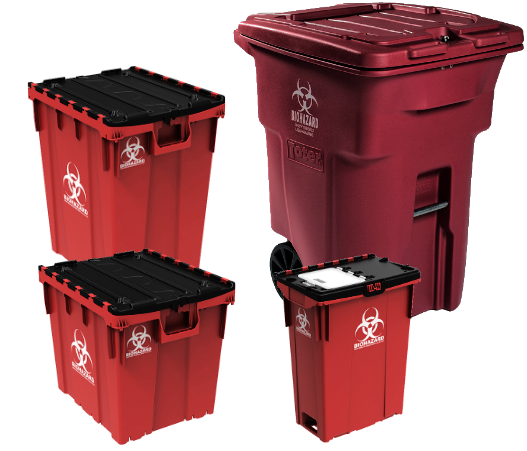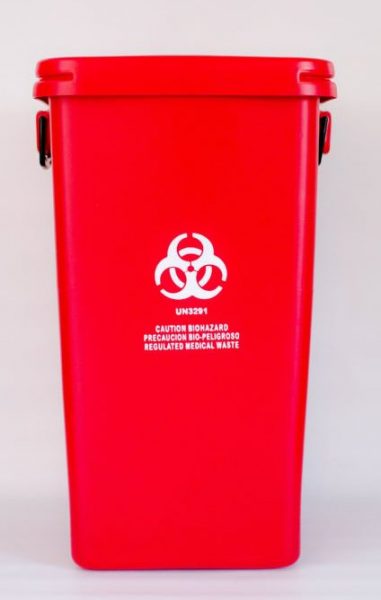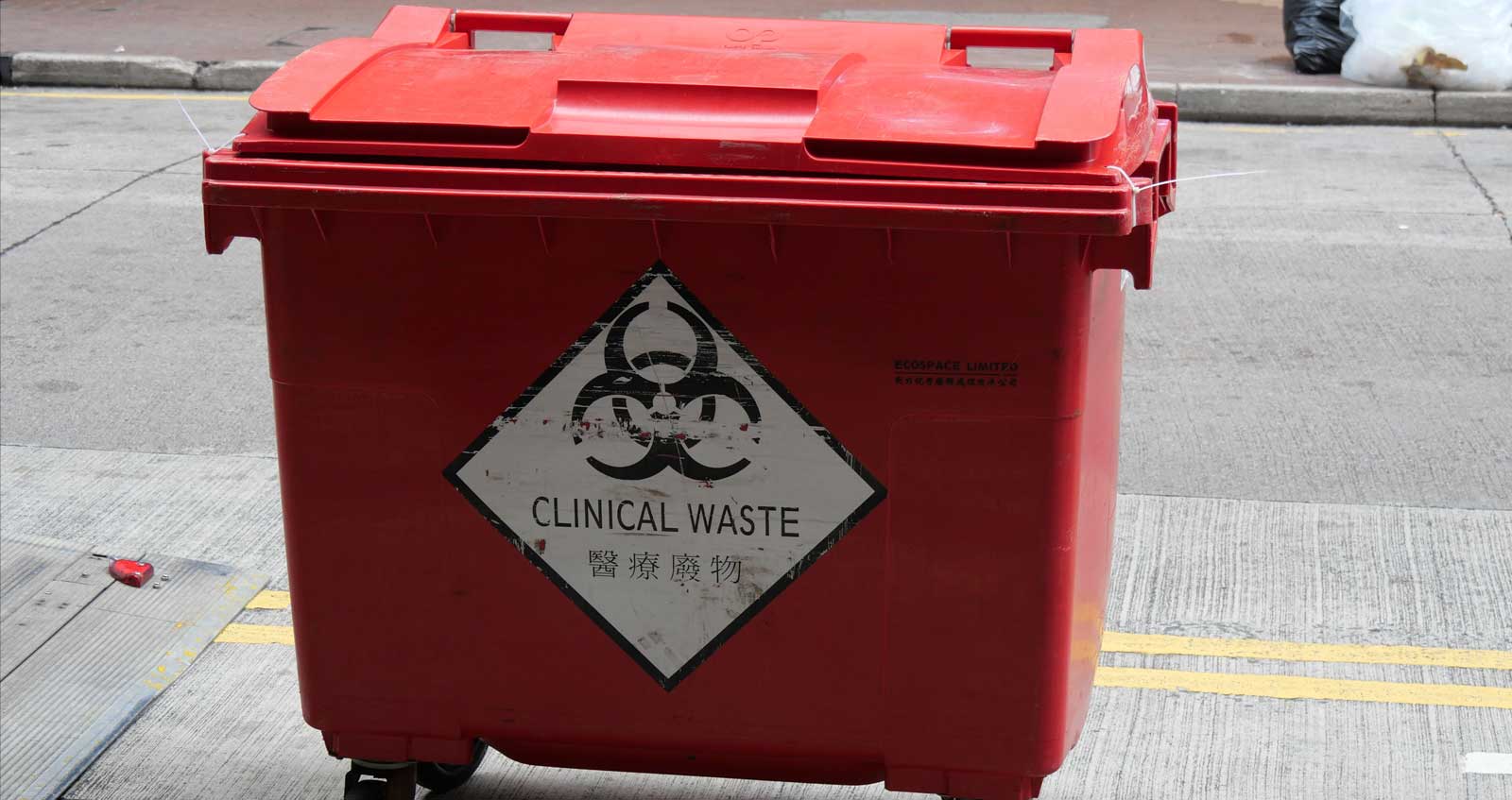Past Cleanup: Ensuring Safety with Professional Medical Waste Removal
Past Cleanup: Ensuring Safety with Professional Medical Waste Removal
Blog Article
Stay Ahead of Regulations: Expert Recommendations on Medical Garbage Disposal
In a globe where the healthcare industry is regularly progressing, it is essential for medical centers to remain in advance of regulations when it concerns the appropriate disposal of clinical waste. With rigorous guidelines and frequent regulatory changes, it can be challenging to navigate the complexities of this process. With experienced suggestions, centers can make sure conformity and alleviate dangers connected with improper waste disposal. From recognizing the different classifications of medical waste to executing the best collection and segregation approaches, this conversation will certainly offer important insights and workable pointers to assist facilities stay in advance of guidelines in the ever-changing landscape of medical waste disposal.
Understanding Clinical Waste Categories
Understanding clinical waste categories is crucial for appropriate disposal and management in health care facilities. Medical waste describes any waste created by healthcare tasks that might position a hazard to public health and wellness or the setting. It is essential to classify medical waste precisely to guarantee its safe handling, disposal, transport, and therapy.
There are numerous categories of medical waste that medical care centers require to be aware of. One of the most common classifications consist of transmittable waste, pathological waste, sharps waste, pharmaceutical waste, and chemical waste. Each category has certain standards and laws for its proper administration and disposal.
Contagious waste consists of products contaminated with blood or other bodily fluids, such as gloves, dress, and research laboratory societies. Pathological waste describes human cells, body organs, or body components that require special delivery and disposal. Sharps waste includes used needles, syringes, and other sharp items that can trigger injury and transfer infections. Pharmaceutical waste makes up ended, extra, or polluted medications that require mindful handling and disposal. Chemical waste includes solvents, disinfectants, and other chemical materials made use of in medical care centers.
Staying Up-To-Date With Regulatory Modifications
Staying current with regulatory adjustments is crucial for medical care centers to make sure conformity and proper management of clinical garbage disposal. medical waste removal services. With policies continuously evolving, it is essential for medical care facilities to stay current to prevent penalties, penalties, and prospective harm to the environment and public wellness
To stay in advance of regulative changes, medical care facilities must establish a system for surveillance and tracking updates. This can be done by subscribing to governing newsletters, participating in seminars and workshops, and proactively joining sector associations. In addition, facilities should assign a team member or team accountable for remaining notified and sharing info to pertinent stakeholders.
Regular interaction with regulatory companies is also crucial. Medical care facilities need to establish connections with neighborhood, state, and government firms to ensure they understand any kind of modifications in laws that may affect their waste administration practices. This can be done through routine conferences, involvement in public remark durations, and proactive interaction with governing agencies.
Additionally, healthcare centers should take into consideration partnering with waste management firms that focus on clinical waste disposal (medical waste disposal services with WasteX). These business are often well-versed in the most recent laws and can offer support and assistance to make certain conformity
Implementing Proper Collection and Segregation Techniques
To successfully take care of clinical garbage disposal, medical care centers have to develop correct collection and partition approaches based on governing standards. Implementing these approaches ensures the safe handling and disposal of possibly unsafe products, shields the setting, and decreases the threat of injuries and infections to health care workers and the general public.
Proper collection and segregation approaches entail making use of assigned containers and identifying systems. Health care facilities should give plainly identified containers for different types of clinical waste, such as sharps, contagious waste, pharmaceutical waste, and non-hazardous waste. These containers must be color-coded and clearly significant to stay clear of confusion and promote very easy recognition.
Furthermore, healthcare centers must train their team on the proper procedures for accumulating and segregating clinical waste. This consists of informing them on the various kinds of waste, the proper containers to make use of, and the importance of adhering to regulations and standards. Regular training sessions and refresher course programs should be performed to make sure that team member remain current on finest techniques.
Moreover, healthcare centers should develop a system for regular collection and disposal of clinical waste. This may include partnering with licensed waste administration companies that focus on clinical waste disposal. These firms will make sure that the collected waste is delivered and gotten rid of in conformity with regulative needs.
Choosing the Right Disposal Techniques

Incineration is one of the most common and efficient techniques for disposing of certain kinds of medical waste, such as pathological waste and sharps. It involves the controlled combustion of waste at heats, reducing it to ash. Incineration can release damaging contaminants into the air and contribute to air contamination.

Chemical treatment involves the usage of chemicals to disinfect and neutralize the waste. Microwave treatment utilizes microwave power to heat and decontaminate the waste.
Ensuring Compliance Via Documents and Training
After thoroughly thinking about the appropriate disposal methods for clinical waste, health care centers need to ensure conformity with about his laws and decrease environmental effect by carrying out efficient documentation and training procedures. This action is critical in preserving a risk-free and lasting environment for both health care workers and the basic public.

Medical care employees who take care of medical waste should get proper training on waste segregation, dealing with, and disposal procedures. By supplying detailed training, health care centers can encourage their personnel to make informed decisions and minimize the threat of incorrect waste disposal.
Verdict
In conclusion, remaining ahead of laws in clinical waste disposal is vital for medical care centers. medical waste removal near me. Understanding the various classifications of medical waste, staying updated with regulatory changes, carrying out appropriate collection and segregation techniques, choosing the ideal disposal methods, and guaranteeing conformity through documentation and training are all necessary steps. By following these guidelines, health care organizations can efficiently get rid of and take care of of clinical waste in a accountable and safe manner
From comprehending the various groups of medical waste to executing the right collection and partition methods, this discussion will certainly supply workable suggestions and beneficial insights to help centers remain ahead of guidelines in the ever-changing landscape of Recommended Site clinical waste disposal. - medical waste disposal services with WasteX
The most usual classifications consist of transmittable waste, pathological waste, sharps waste, pharmaceutical waste, and chemical waste. Health care facilities must give clearly labeled containers for various types of medical waste, such as sharps, transmittable waste, pharmaceutical waste, and non-hazardous waste. Healthcare facilities should develop an extensive system to tape-record and track all aspects of clinical waste disposal, including kinds of waste created, quantities, and disposal methods utilized. Healthcare employees who deal with clinical waste needs to obtain proper training on waste segregation, dealing with, and disposal treatments.
Report this page